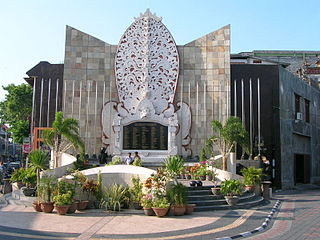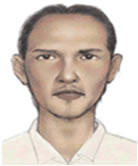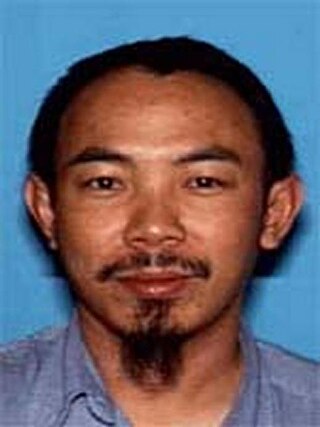
A series of bombings occurred on 12 October 2002 in the tourist district of Kuta on the Indonesian island of Bali. The attacks killed 202 people and a further 209 people were injured. General Da'i Bachtiar, the Indonesian chief of police at the time, said that the bombings was the "worst act of terror in Indonesia's history".

Jemaah Islamiyah was a Southeast Asian Islamist militant group based in Indonesia, which was dedicated to the establishment of an Islamic state in Southeast Asia. On 25 October 2002, immediately following the JI-perpetrated 2002 Bali bombings, JI was added to the UN Security Council Resolution 1267.

The Singapore embassies attack plot was a plan in 2001 by Jemaah Islamiyah (JI) to bomb the diplomatic missions and attack personnel of the United States, Australia, the United Kingdom, and Israel based in Singapore. There were also several other targets. The plot was uncovered in December 2001 and as many as 15 people were arrested in Singapore within a month. Further investigation and intelligence prompted the detention of another 26 persons from 2002 to 2005. As of 2006, 37 of them were still being detained without trial, under the Internal Security Act. Four had been released on restriction orders.

Dr. Azahari bin Husin, also known as Azahari Husin or Azhari Husin, was a Malaysian engineer and former university lecturer who was believed to be the technical mastermind behind the Philippine consulate bombing in Jakarta, Jakarta Stock Exchange bombing, Christmas Eve 2000 Indonesia bombings, 2002 Bali bombings, 2002 Makassar bombing, 2004 Poso bus bombing and 2005 Tentena market bombings. He was nicknamed the "Demolition Man". Prior to his death, he was one of the most wanted men in Indonesia along with Noordin Mohammad Top.

A one-tonne car bomb, which was packed into a small Daihatsu delivery van, exploded outside the Australian embassy at Kuningan District, South Jakarta, at about 10:30 local time on 9 September 2004, killing 9 people including the suicide bomber, and wounding over 150 others. The explosion gutted the Greek embassy on the 12th floor of an adjacent building, where three diplomats were slightly wounded. Damage to the nearby Chinese embassy was also reported. Numerous office buildings surrounding the embassy were also damaged by the blast, which shattered windows in buildings 500 metres (500 yd) away, injuring many workers inside, mostly by broken glass.

A series of bombings occurred on 1 October 2005 in Bali, Indonesia. Bombs were detonated at two sites in Jimbaran Beach resort and in Kuta 30 km (19 mi) away, both in south Bali. The attack claimed the lives of 20 people and injured more than 100 others. The attack was known in Indonesia as the second Bali bombings to distinguish it from the 2002 attacks.

A suicide bomber detonated a car bomb outside the lobby of the JW Marriott Jakarta hotel on 5 August 2003, killing 12 people and injuring 150. Those killed included 11 Indonesians and one Dutch national. The hotel was viewed as a Western symbol, and had been used by the United States embassy for various events. The hotel was closed for five weeks and reopened to the public on 8 September 2003.

Noordin Mohammad Top was a Malaysian Muslim extremist. He was also referred to as Noordin, Din Moch Top, Muh Top, Top M or Mat Top. Until his death, he was Indonesia's most wanted Islamist militant.
On 24 December 2000, a series of explosions took place in Indonesia, which were part of a high-scale terrorist attack by Al Qaeda and Jemaah Islamiyah. The attack, which occurred on Christmas Eve, involved a series of coordinated bombings of churches in Jakarta and eight other cities which killed 18 people and injured many others.

Counterterrorism Special Detachment 88, or Densus 88, is an Indonesian National Police counter-terrorism squad formed on 30 June 2003, after the 2002 Bali bombings. It is funded, equipped, and trained by the United States through the Diplomatic Security Service's Antiterrorism Assistance Program and Australia.

Umar Patek is an Indonesian convicted terrorist and member of Jemaah Islamiyah who was wanted in the United States, Australia, and Indonesia on terrorism charges. There was a US$1 million reward offered by the Rewards For Justice Program for information leading to his capture.

Terrorism in Indonesia refer to acts of terrorism that take place within Indonesia or attacks on Indonesian people or interests abroad. These acts of terrorism often target the government of Indonesia or foreigners in Indonesia, most notably Western visitors, especially those from the United States and Australia.
Asmar Latin Sani was the suicide bomber from West Sumatra who detonated the car bomb in the 2003 Marriott Hotel bombing. His severed head was later found on the fifth floor of the building.
The Al-Mukmin Islamic boarding school also known as Pesantren Al-Mukmin and Pondok Ngruki, is a pesantren located in Ngruki, a suburb in the regency of Sukoharjo, Central Java, Indonesia. It was founded 1972 by the alleged 'spiritual head' of Jemaah Islamiyah, Abu Bakar Bashir, and by Abdullah Sungkar. Al-Mukmin's activities were initially limited to religious discussion after dhuhr. Following increasing interest, the founders expanded Al-Mukmin into a madrasah and then into a pesantren. It currently houses over 2000 students aged between 12 and 18.

Huda bin Abdul Haq was an Indonesian terrorist who was convicted and executed for his role in coordinating the Christmas Eve 2000 Indonesia bombings and 2002 Bali bombings. Mukhlas was a senior and influential Jemaah Islamiyah leader with ties to Osama bin Laden.
Abu Dujana was the military leader of Jemaah Islamiah from 2005 until June 2007 when he was arrested.

Zulkifli Abdhir was a Malaysian who was one of the FBI Most Wanted Terrorists. The American Federal Bureau of Investigation (FBI) agency offered a US$5 million reward for information leading to his capture. He was the maker of bombs delivered for usage to several terrorist groups. He was often referred to by the nom de guerreMarwan. He was suspected of leading the Kumpulan Mujahidin Malaysia (KMM), being part of the central command of the Jemaah Islamiyah (JI), and of involvement in the 2002 Bali bombings. He was suspected of hiding in Mindanao under the protection of the Bangsamoro Islamic Freedom Fighters.
Jamaah Ansharut Daulah is an Indonesian terrorist group that has been reported to be linked to the 2018 Surabaya bombings as well as the 2019 Jolo Cathedral bombings. The Islamic State of Iraq and the Levant (ISIL) has been reported as claiming responsibility for both attacks. The group had been identified by the United States Department of State as a terrorist organization in 2017. It is banned by Iraq and Indonesia. It is also listed as a terrorist organization by the United Nations Security Council on 4 March 2020.












